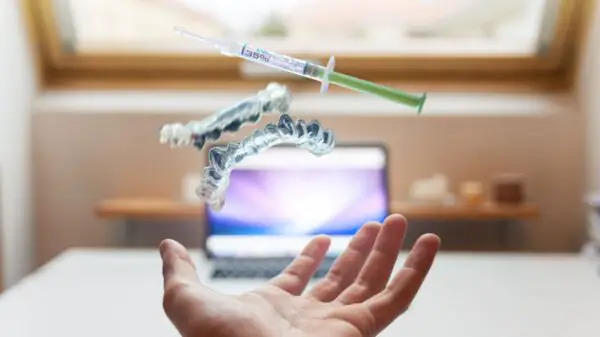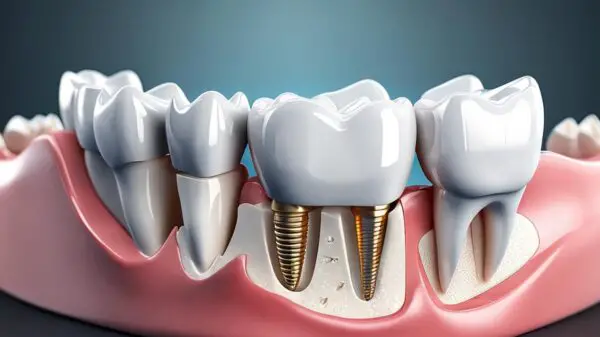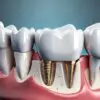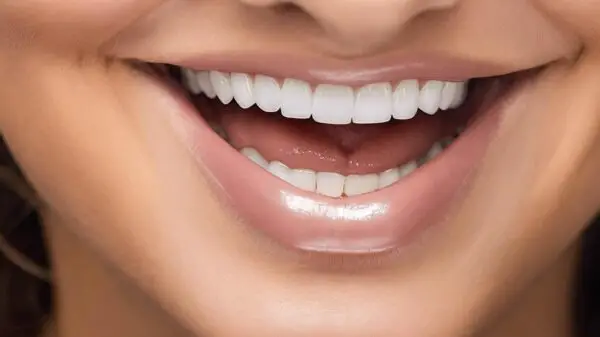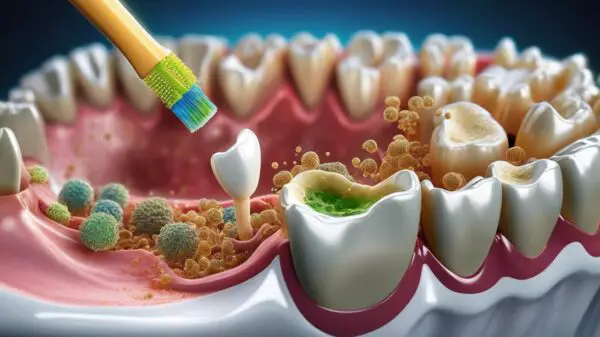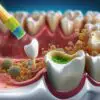How Genetics Play a Part In Oral Health
Oral health is an essential part of our overall well-being, and maintaining healthy teeth and gums is crucial for both our physical and mental health. While we all know that brushing and flossing are important for maintaining good oral health, there may be other factors at play that impact the health of our teeth and gums. So, do genetics play a part in oral health?
Yes, genetics can play a part in oral health. Research has shown that certain genetic variations can make some individuals more susceptible to dental problems such as tooth decay, gum disease, and oral cancer.
In this article, we’ll explore the role that genetics plays in oral health and what steps we can take to maintain good oral health regardless of our genetic makeup.

The Ways How Genetics Play a Role In Your Oral Health
The field of genetics, which is the study of genes and their role in inheritance, has made significant progress in recent years. Scientists have discovered numerous genes that are associated with various aspects of oral health. While genetics alone cannot fully predict an individual’s oral health, they can influence an individual’s susceptibility to oral health conditions and their response to treatment. So here are eight ways that genetics can play a role in our oral health:
1. Tooth Development
Genetics plays a role in your tooth development, as it can influence the formation and growth of teeth, including the size, shape, and structure of teeth. Some genetic conditions can also affect the number of teeth that develop.
2. Enamel Quality
The quality and thickness of tooth enamel, which protects teeth from decay and erosion, can be influenced by genetics. Certain genetic mutations can result in weakened enamel that is more susceptible to damage.
3. Saliva Production
Saliva plays an important role in maintaining oral health by washing away food particles and bacteria. Genetics can affect the amount and composition of saliva that is produced, which can impact oral health.
4. Taste Preferences
Genetics can influence a person’s taste preferences, including their preference for sweet foods. This can impact their risk of developing dental cavities, as sugary foods can increase the risk of tooth decay.
5. Immune Response
Genetics can affect a person’s immune response to oral bacteria and infections, which can impact their susceptibility to oral health problems such as gum disease.
6. Orthodontic Issues
Some genetic factors can influence the development of the jaw and the alignment of teeth, which can lead to orthodontic issues such as crowded or crooked teeth.
7. Periodontal Disease
Periodontal disease, which is a chronic infection that affects the gums and supporting structures of the teeth, is another condition that may have a genetic component. Research has shown that certain genetic variations can increase an individual’s susceptibility to periodontal disease by altering their immune response to bacteria in the mouth. For example, a genetic variant in the IL-1 gene has been associated with an increased risk of periodontal disease, as individuals with this variant are more likely to experience an excessive immune response to bacteria in the mouth, leading to inflammation and tissue damage.
8. Risk of Oral Cancer
Some genetic mutations have been linked to an increased risk of oral cancer. People with a family history of oral cancer may be at higher risk of developing the condition themselves.

How Do I Start Looking into My Genetics?
If you decide that looking into your genetics is the way to go, you can research genetic testing companies. There are several genetic testing companies that offer DNA testing services, such as 23andMe, AncestryDNA, and MyHeritage. You can research these companies to learn more about the types of genetic tests they offer, how much they cost, and what kind of information you can expect to receive. Choose a genetic testing company once you’ve researched genetic testing companies. Once you’ve chosen a genetic testing company, you can order a DNA test kit, follow the instructions on how to provide a DNA sample, and return it. The genetic testing company will analyze your DNA sample and provide you with a report that includes information about your ancestry, genetic traits, and potential health risks.
It’s important to keep in mind that genetic testing has limitations and may not provide all of the answers you’re looking for. It’s also important to consider the potential emotional and psychological impact of genetic testing before deciding to pursue it. You may want to discuss genetic testing with a healthcare provider or genetic counselor before proceeding.
What Will I Find?
Looking at your family history can provide valuable information about your genetic risk for certain oral health problems. Here are some ways you can use this information to prevent oral health problems:
Inform your dentist
Make sure to inform your dentist about any family history of oral health problems, such as cavities, gum disease, or oral cancer. This can help your dentist evaluate your risk and take appropriate preventive measures.
Practice good oral hygiene
Regardless of your genetic risk, practicing good oral hygiene is essential for preventing oral health problems. Brush your teeth twice a day, floss daily, and use mouthwash to help reduce bacteria in your mouth.
Maintain a healthy diet
Eating a healthy diet that is low in sugar and high in nutrient-rich foods can help prevent tooth decay and gum disease.
Quit smoking: If you have a family history of oral cancer, quitting smoking and avoiding tobacco products can significantly reduce your risk.
Regular dental check-ups
Regular dental check-ups and cleanings are important for preventing oral health problems. Your dentist can catch any potential problems early and provide preventive treatment to keep your teeth and gums healthy.
Consider genetic testing
If you have a strong family history of a particular oral health condition, genetic testing may be able to help you determine your risk. This can help you take appropriate preventive measures and receive early treatment if necessary.
What Side of The Family Does Oral Genetics Come From?
When it comes to oral genetics, many people wonder whether their oral health traits come from their mom or dad. The answer is that both parents can contribute to a person’s oral health genetics, as traits for oral health can be influenced by multiple genes.
Some oral health conditions have been found to have a higher association with maternal genetics. For example, a study published in the Journal of Dental Research found that maternal genetics play a significant role in the development of cavities in children. The study found that children whose mothers had a higher number of cavities were more likely to have cavities themselves, regardless of their father’s oral health history.
Other oral health conditions, such as gum disease, have been found to have a stronger association with paternal genetics. For example, a study published in the Journal of Periodontology found that individuals whose fathers had severe gum disease were more likely to develop gum disease themselves, even if their mothers had good oral health.
However, it’s important to note that genetics is not the only factor that influences oral health. Lifestyle factors, such as diet, oral hygiene practices, and smoking, can also play a significant role in the development of oral health conditions. Additionally, environmental factors, such as exposure to certain chemicals or radiation, can also impact oral health.

Knowing Can Be The Key To Your Health Issues
Looking into your genetic history can provide valuable insights into your oral health issues and help you live a fuller life. Genetics plays a significant role in determining a person’s susceptibility to various oral health problems, including cavities, gum disease, and oral cancer. By understanding your genetic predispositions, you can take steps to prevent or manage these conditions and improve your overall oral health.
Genetic testing is a tool that can help you better understand your oral health risks. Genetic testing can identify variations or mutations in your DNA that are associated with an increased risk of certain oral health conditions. For example, some genetic variations have been linked to a higher risk of developing periodontitis, a severe form of gum disease. By identifying these genetic risk factors, you can take steps to prevent or manage the condition and improve your oral health.
In addition to genetic testing, there are other ways to use genetics to improve your oral health. For example, researchers have identified specific genes that play a role in how the body responds to inflammation. Inflammation is a significant risk factor for many oral health conditions, including gum disease and oral cancer. By understanding your genetic predisposition to inflammation, you can take steps to reduce inflammation and improve your oral health.
Another way to use genetics to improve your oral health is by understanding your family history. Many oral health conditions, such as gum disease and oral cancer, have a genetic component. If you have a family history of these conditions, you may be at a higher risk of developing them yourself. By knowing your family history, you can take steps to prevent or manage these conditions.
In Closing
In conclusion, genetics can play a role in oral health, but it’s not the only factor. With good oral hygiene practices, such as brushing twice a day, flossing daily, and visiting the dentist regularly, and making healthy lifestyle choices, we can minimize the impact of any genetic factors and maintain good oral health throughout our lives.









